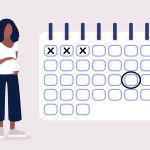1. The First Signs of Pregnancy
Pregnancy can feel like a whirlwind of changes, even in the earliest days. Before you even take a test, your body may start giving you clues that something amazing is happening. From missed periods to hormonal shifts, lets explore the first signs of pregnancy and what they mean for your developing baby.
Common Early Pregnancy Symptoms
Every woman experiences pregnancy differently, but there are some common early signs that many moms-to-be notice. Here’s a quick look at some of the most typical symptoms:
| Symptom | Description | Why It Happens |
|---|---|---|
| Missed Period | Your menstrual cycle stops as your body begins supporting a pregnancy. | Rising levels of hCG (human chorionic gonadotropin) signal your body to halt ovulation. |
| Tender or Swollen Breasts | Your breasts may feel sore or fuller due to hormonal changes. | Increased estrogen and progesterone prepare your body for breastfeeding. |
| Fatigue | You may feel more tired than usual, even if youre getting enough sleep. | Higher progesterone levels and increased energy demands contribute to exhaustion. |
| Nausea or Morning Sickness | You might feel queasy or vomit, especially in the morning. | Hormonal shifts affect digestion and sensitivity to smells. |
| Frequent Urination | You may find yourself needing to pee more often than usual. | Your kidneys are working harder, and your uterus is beginning to expand. |
| Mood Swings | You could experience sudden emotional changes or heightened sensitivity. | Fluctuating hormones impact neurotransmitters in the brain. |
What These Symptoms Mean for Your Baby
While these symptoms may be uncomfortable, they’re actually great signs that your body is adjusting to support your growing baby. Increased hormone levels help create the perfect environment for your little one to develop. By the end of the first trimester, their major organs will begin forming, and their tiny heart will already be beating!
When to Take a Pregnancy Test
If youre experiencing any of these early signs and suspect you might be pregnant, taking a home pregnancy test can provide clarity. Most tests detect hCG in urine about 10-14 days after conception. For the most accurate results, its best to test first thing in the morning when hormone levels are highest.
Next Steps
If your test is positive, scheduling an appointment with a healthcare provider is an important next step. They’ll confirm your pregnancy and help guide you through prenatal care to ensure both you and your baby stay healthy during this exciting journey!
2. Weeks 1-4: Cell Division and Implantation
Fertilization: The Beginning of Life
The first step in your baby’s journey begins with fertilization. This occurs when a sperm successfully meets an egg in the fallopian tube. Once fertilized, the egg is called a zygote, which contains all the genetic material needed to form your baby.
Formation of the Blastocyst
After fertilization, the zygote starts dividing rapidly as it travels toward the uterus. Within a few days, it becomes a cluster of cells known as a blastocyst. This tiny structure consists of two main parts: an inner group of cells that will develop into your baby and an outer layer that will form the placenta.
Implantation: A Crucial Step
Around days 6-10 after fertilization, the blastocyst reaches the uterus and attaches itself to the uterine lining in a process called implantation. This is a critical moment because it allows the embryo to receive nutrients and oxygen from your body.
Key Developments in Weeks 1-4
| Week | Developmental Milestone |
|---|---|
| Week 1 | Fertilization occurs; zygote begins cell division. |
| Week 2 | Zygote transforms into a blastocyst and moves toward the uterus. |
| Week 3 | Implantation begins; early placenta starts forming. |
| Week 4 | The embryo starts receiving nutrients from the mother. |
Your Bodys Role in Supporting Implantation
During this time, your body produces hormones like progesterone to prepare the uterine lining for implantation. Some women may experience light spotting, known as implantation bleeding, which is completely normal.
What You Might Feel During Weeks 1-4
Most women won’t notice any pregnancy symptoms at this stage, but some may feel mild cramping or fatigue. If you’re tracking your cycle closely, you might suspect you’re pregnant even before taking a test.
Looking Ahead
Once implantation is successful, your baby’s development kicks into high gear. In the coming weeks, major organs will begin to form, and you’ll start experiencing more noticeable pregnancy symptoms.

3. Weeks 5-8: Major Organs Begin to Form
During weeks 5 through 8 of pregnancy, your baby is growing rapidly, and some of the most important developments are taking place. This is when major organs begin to form, and tiny features start to emerge.
Your Baby’s Heart Starts Beating
One of the most exciting milestones during this period is the development of your babys heart. Around week 5, the heart starts as a simple tube-like structure, but by week 6, it begins to beat and pump blood. By week 8, the heart has divided into four chambers and is beating at a steady rhythm.
Brain and Spinal Cord Development
The brain and spinal cord begin forming early in this stage. The neural tube, which will later become the central nervous system, closes around week 6. By the end of week 8, different sections of the brain are developing, laying the foundation for future cognitive functions.
Tiny Limbs Begin to Take Shape
Your baby’s arms and legs start to develop during these weeks. At first, they look like small buds, but soon they lengthen and tiny fingers and toes begin to form. Joints also start developing, preparing for movement in the coming weeks.
Key Developments During Weeks 5-8
| Week | Development Milestone |
|---|---|
| Week 5 | The heart begins to form and starts beating faintly. |
| Week 6 | The brain and spinal cord continue developing; limb buds appear. |
| Week 7 | The heart has four chambers; facial features start forming. |
| Week 8 | The baby has tiny fingers and toes; organs continue developing. |
4. Weeks 9-12: Growth and Movement
During weeks 9 to 12, your baby is rapidly developing and beginning to show more distinct features. Although you may not feel movement just yet, your little one is already stretching, kicking, and even hiccupping! This stage marks significant progress in fetal development as reflexes emerge and tiny details like fingernails start to form.
Your Baby’s Growing Features
By week 9, your baby’s face is becoming more recognizable. The eyes have moved closer together, the ears are in their proper place, and the tiny nose is fully formed. By week 12, your baby’s fingers and toes are completely separated, and even fingernails and toenails begin to grow!
Development of Reflexes
Your baby’s reflexes start to develop during this time. If you could touch their tiny hands, they would curl their fingers in response. The mouth also starts practicing sucking motions in preparation for feeding after birth.
Early Movements Begin
Even though you can’t feel it yet, your baby is already moving inside the womb. These early movements help strengthen muscles and prepare for future activity. Your little one might be kicking, stretching, and even making small facial expressions.
Key Developments During Weeks 9-12
| Week | Development Milestone |
|---|---|
| Week 9 | Facial features become more defined; arms and legs continue growing |
| Week 10 | Fingers and toes separate; nails begin forming |
| Week 11 | Baby starts making spontaneous movements; head is more proportionate to the body |
| Week 12 | Your baby can open and close fingers; intestines move into the abdomen |
5. Taking Care of Yourself and Your Baby
Your first trimester is a critical time for your babys development, and taking care of yourself is just as important as monitoring your babys growth. From your first prenatal visit to essential lifestyle changes, here’s what you need to know to support a healthy pregnancy.
What to Expect at Your First Prenatal Visit
Your first prenatal appointment usually happens around 8 to 10 weeks of pregnancy. This visit is essential for confirming your pregnancy, assessing your health, and creating a plan for prenatal care.
Common Procedures During Your First Visit
| Procedure | Purpose |
|---|---|
| Ultrasound | To confirm the pregnancy and estimate due date |
| Blood Tests | To check for blood type, iron levels, and infections |
| Urine Test | To screen for infections and monitor kidney function |
| Prenatal Vitamins | To ensure proper nutrition for baby’s development |
| Medical History Review | To identify any potential health risks |
Essential Lifestyle Changes for a Healthy Pregnancy
Your body is working hard to nourish your growing baby, so making positive lifestyle adjustments can help support a healthy pregnancy.
Avoid Harmful Substances
- Avoid alcohol, smoking, and recreational drugs.
- Limit caffeine intake to under 200 mg per day (about one 12-ounce cup of coffee).
- Avoid exposure to toxic chemicals like household cleaners with strong fumes.
Stay Active Safely
- Aim for moderate exercise like walking or prenatal yoga.
- Avoid high-impact activities or exercises that involve lying flat on your back after the first trimester.
- Listen to your body—rest when needed.
Nutritional Tips for a Strong Start
A balanced diet is key to supporting both you and your baby’s health. Focus on nutrient-rich foods that provide essential vitamins and minerals.
Prenatal Nutrition Guidelines
| Nutrient | Why It’s Important | Sources |
|---|---|---|
| Folic Acid | Aids in neural tube development, preventing birth defects. | Leafy greens, fortified cereals, beans |
| Iron | Keeps oxygen flowing in blood and prevents anemia. | Lean meats, spinach, lentils |
| Calcium | Aids in baby’s bone and teeth formation. | Dairy products, almonds, tofu |
| DHA (Omega-3) | Supports brain and eye development. | Salmon, walnuts, flaxseeds |
| Protein | Aids in overall growth and cell development. | Poultry, eggs, nuts, beans |
Your first trimester sets the foundation for a healthy pregnancy. By attending prenatal visits, making smart lifestyle choices, and focusing on proper nutrition, youre giving your baby the best possible start in life.


